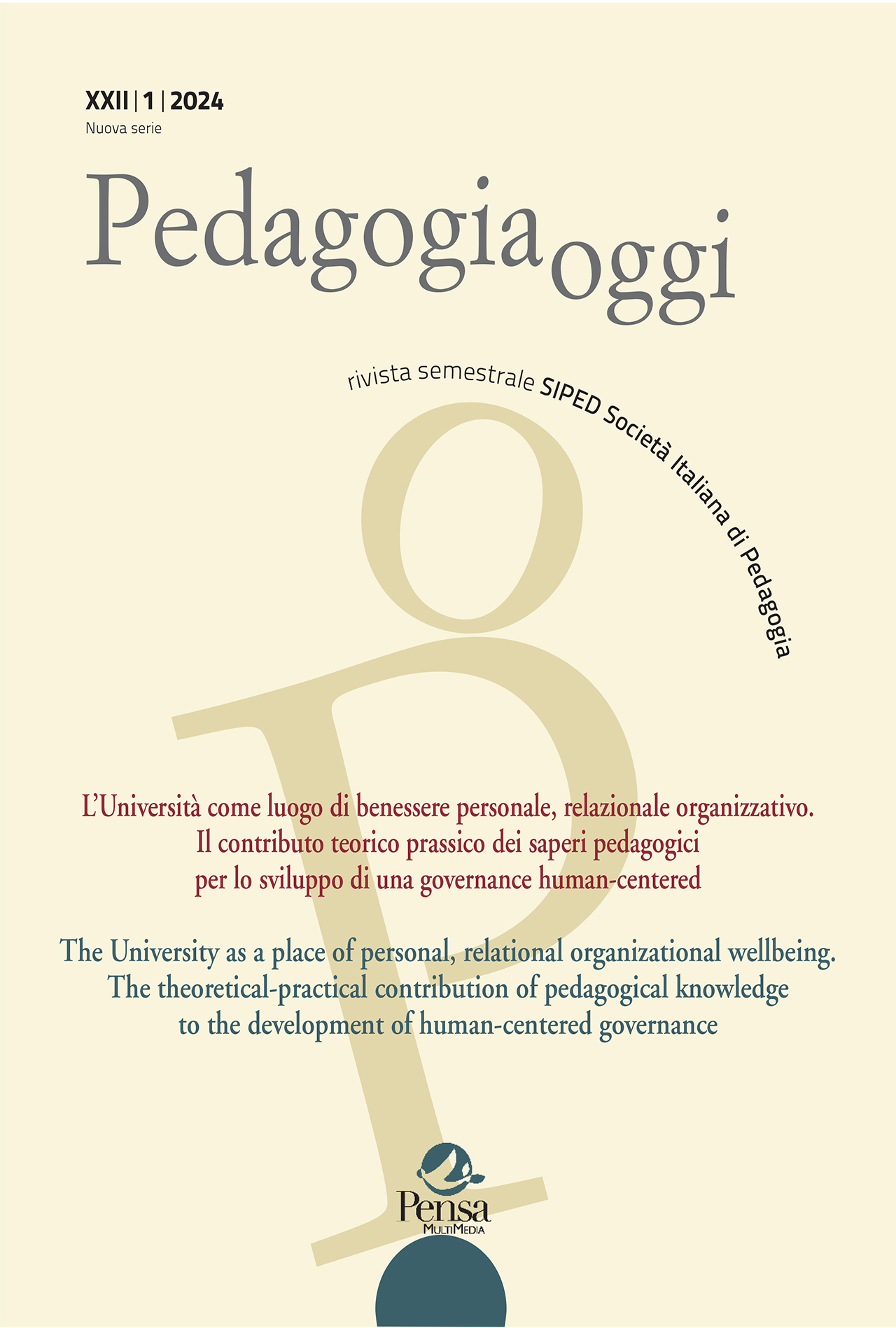The University between Paradigmatic Drifts and Emerging Models: What Pedagogical Specificity?
DOI:
https://doi.org/10.7346/PO-012024-02Keywords:
models, pedagogical knowledge , recommencement , humanitas, universityAbstract
In recent decades, the Italian university has experienced some transformation processes that have changed its traditional paradigms, referable to its mission, functions and objectives. On the one hand, the idea of a university that aims at selecting the ruling class, a legacy of a Gentilean perspective, seems to have waned; on the other hand, the perception of the uselessness or, however, of the poor effective usefulness of the legal value of the educational qualification is karstically spreading. Despite national and local academic policies for ensuring objective conditions (canteens, laboratories, university residences, company crèches, participatory spaces, etc.), stories pervaded with a not easy to label, hardly definable malaise keep appearing, to a pedagogical gaze which is attentive to subjectivity forms, and they originate in a university experience studded with failures, renunciations and unsuccessful recommencements.
Moving from these short premises, this study will try to centralize the role of a pedagogical knowledge that dares to identify and, simultaneously, to denounce a mere bureaucratic, falsely liberal logic underlying academic-political choices that are frequently extemporary and fragmentary. The hallmark of a pedagogical militancy could move in the direction of a caring not rhetorically announced, but centred on the dimension of a humanitas that regains the wonder of mistake, the joy of recommencement.
Downloads
Published
Issue
Section
License
Copyright (c) 2024 Marinella Attinà

This work is licensed under a Creative Commons Attribution 4.0 International License.




